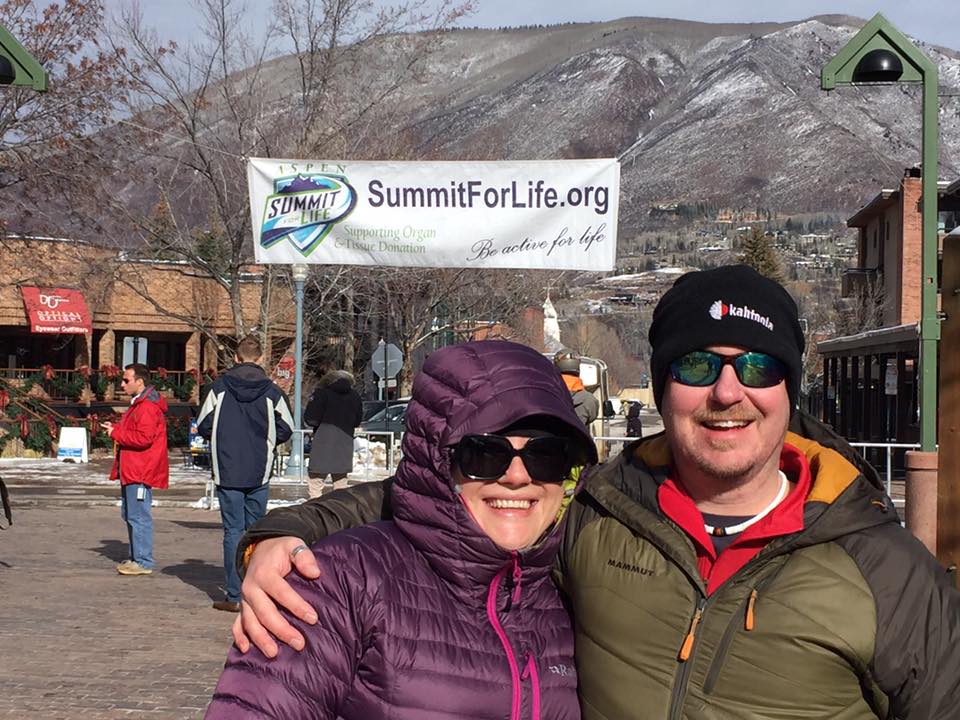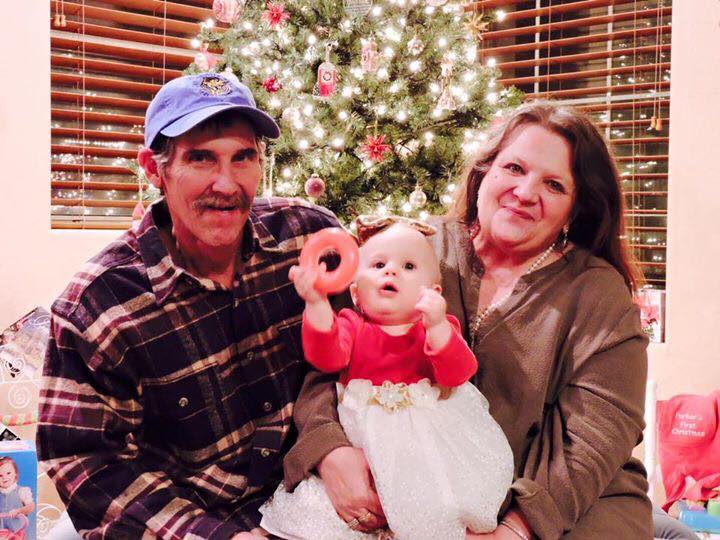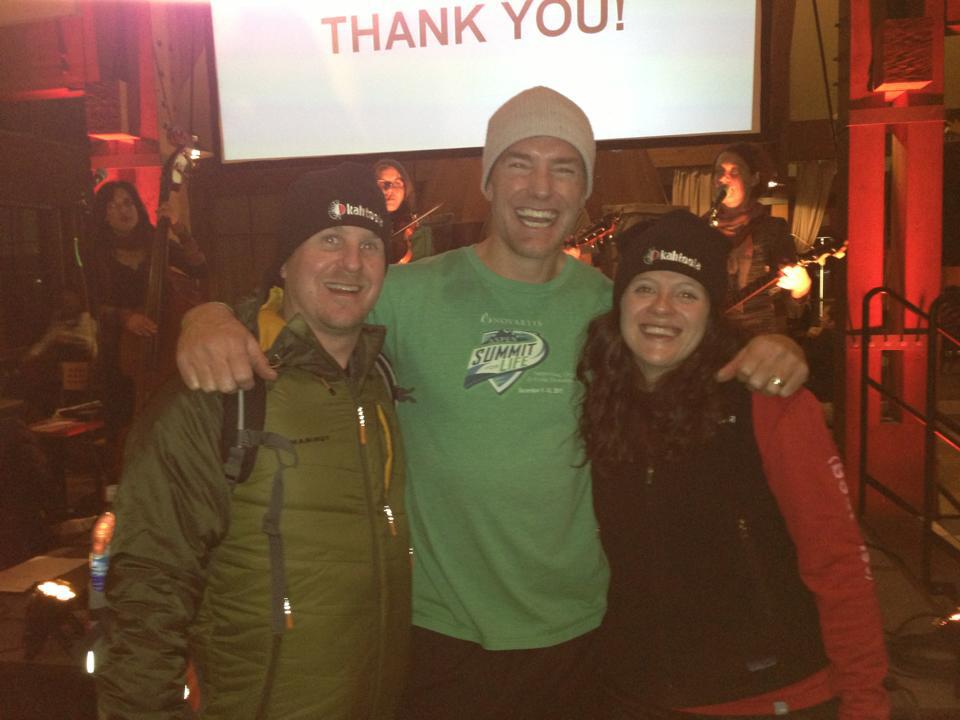In a Perfect World

Every December for the last 11 years I’ve had the opportunity to attend Summit for Life, an amazing annual weekend event in Aspen, CO, that Kahtoola sponsors and supports the Chris Klug Foundation in educating and honoring organ and tissue donor awareness, as well as the families and individuals who have given or received. It’s an event that leaves you feeling inspired and believing anything is possible. (It also makes you feel like you need to go to the MVD as soon as possible and make sure you are a donor.) And every year I leave with something new. Sometimes it’s a fact about organ donation; other times just a feeling of true amazement that comes from realizing what people can accomplish when given a second chance.
If you were to ask me what I walked away with last year, I’d have to be honest: I don’t remember.
It’s not for lack of an amazing event or people’s stories, but because I would find out days later that my dad, Kelly, had liver cancer. Now, was this a surprise? It depends on who you ask. He had looked sick, but had also kept working until the day before he ended up in the ICU. And to be clear, he was digging a hole in the middle of winter at the water treatment plant he ran, so it wasn’t like he was just sitting at a desk like I do most days.
The first day he was in the ICU, Dec. 10, 2016, I sat with him that evening while we waited for his parents to get to town and my mom went home to change and feed the dogs, and just take a moment to rest. At the time we didn’t know what was coming or even what was wrong; we were focused on the good, they had gotten his pain under control, and he was even able to eat a little soup. He always loved hearing about my trips and wanted to hear all about this crazy event in Aspen, where people climb a mountain in the dark and raise money for a good cause. He also enjoyed hearing about my favorite past time while in Aspen: the people watching and stores where you can buy a $5,000 jacket and imagine what it would be like to have that kind of money. What I couldn’t have known then was that would be the last real conversation I’d have with him. Over the next 24 hours the morphine would become the only way to control the pain, but it would also make my dad disappear in front of us.

Day two was filled with tests and doctors, tears in a courtyard, phone calls to let people know we knew nothing but hoped soon we would, and trying to make sure that everyone, especially my mom and Kelly’s parents, were OK. After several tests we were told to get some rest as it was unlikely we’d hear anything that night. With my mom fighting a bad cold and his parents needing to spend some time with his brother, I insisted everyone go home and I would sit with him. After all, at this point, he was just sleeping. Not 45 minutes later, everything changed.
Turns out, when its bad, tests and answers come quickly.
As I stood in a hospital room next to my dad and got about the worst news anyone can get—words like “tumor size of a grapefruit,” “it’s terminal” and “maybe weeks, but likely less” start to jump out at you—I tried not to cry because I didn’t want to miss anything. Other than a nurse, two doctors and my unconscious father, I was alone.
I remember waiting for the but … that never came, then started asking the questions, “What about a liver transplant? Chemo? Experimental treatment? And then the words “there is nothing we can do” came and everything stopped. Reality hit that I had to tell everyone. I called my husband, barely able to get the words out, finding it hard to breathe and knowing my next call would have to be to my mom, then Kelly’s parents. The list goes on and on, everyone asking the same questions, and you having to give them the same horrible answer. You breathe. You cry. You move through the motions. And at the end it feels like, for just a moment, the world might just stop moving—or maybe it does.
The next day, Dec. 12, 2016, I sat and listened to it all again as the doctors told my mom and his parents so they could hear it for themselves. I remember we asked to record the conversation (we thought this might bring some understanding in the days to come, but the truth is that recording sits on my phone and has never been listened to—but I cannot delete it).
The next three days were, for lack of a better expression, a whirlwind of crazy. Long story short, my amazing husband did the most selfless thing you can imagine: he supported me in bringing my dad home to do hospice. Now, in retrospect, I would not change a thing about this, but I also wouldn’t wish it on anyone. There were warnings from people, questions of whether or not this was a good idea, and also fears of the unknown. But the thing that trumped all of this was knowing that in his last days he would have his family around him—his wife, daughter, son-in-law, and his granddaughter who he loved more than anything. He would also get to sit by our Christmas tree one last time and look at the lights. I still think of that moment as the last time I saw my dad. Two days after bringing him home on Dec. 16, he would pass in his sleep in the early morning.

This brings me to Summit for Life 2017. As it turns out, it helped me start to process the loss of my dad and ask the questions that I didn’t want to ask—the ones with no possible answer. After attending and loving this event for the last 10 years, why couldn’t my dad have been one of these second-chance stories? Why did we have to lose him? Why won’t my daughter have the chance to get to know him? Why does my mom have to go through this? The questions never stop.
The obvious sentiment is that, in a perfect world, no one should ever have to go through what my family and I did. In reality, it’s truly a blessing to be a recipient of an organ, not only for the individual, but also for their family and friends. I now also understand that this isn’t an option for everyone. In my dad’s case, he wasn’t eligible because of the type of tumor—it would grow back and destroy a perfectly good organ, taking that gift from someone else. What I do try to see now, as hard as it is, is that by him not being able to be a recipient means someone else got to live. Is it easy to stomach? Absolutely not. I miss my dad every single day and wish he was here more than I can put into words, but I choose (most days) to think about the time we did have together, and not the time we lost.
A year has passed, and as I took in the part of the weekend that has become my favorite in the last ten years of attending—where you have the opportunity to hear the stories of the Bounce Back Give Back Award recipients as they tell their stories in their own words, people who have received an organ donation and gone on to live their best lives possible—the thoughts I hoped wouldn’t creep in found a way anyway. An overwhelming sadness hit me. Why couldn’t that be my dad? After a few tears in the bathroom and some sweet but awkward hugs, I came back to the moment, remembering that we should all live our best life ever and never take for granted a single moment with someone we love.

If you are not an organ donor, please consider becoming one. One donor can save up to eight lives and give not only those eight people a second chance, but everyone they know and love a second chance. Learn more about Summit for Life at www.summitforlife.org and the Chris Klug Foundation at www.chrisklugfoundation.org.
